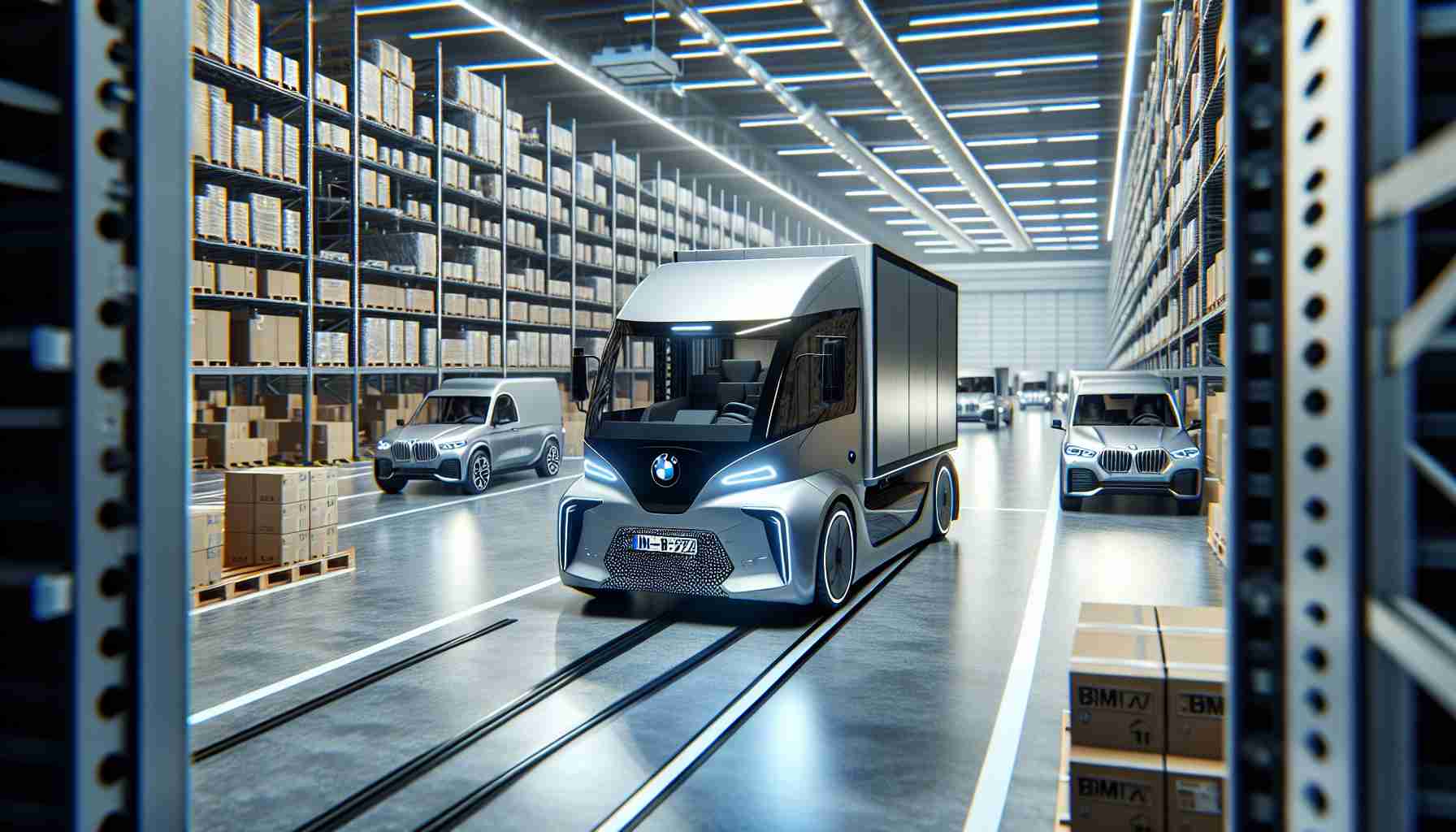Bavarian automaker BMW has unveiled its ambitious plan to transition its intralogistics operations at the Regensburg facility from battery power to hydrogen fuel cell technology. By 2030, the company aims to completely replace its existing fleet with hydrogen-powered forklifts and tugger trucks, marking a notable shift in its operational approach.
While BMW experiences growing sales in battery electric vehicles, it continues to prioritize the development of hydrogen fuel technology. This initiative involves deploying hydrogen-powered vehicles in key areas of its production process, such as the press shop, body shop, and assembly lines at the Regensburg plant.
However, challenges loom over this transition, particularly concerning the sustainability of hydrogen fuel itself. The predominant production method for hydrogen utilizes fossil fuels, raising concerns about its environmental impact and economic viability compared to diesel or battery solutions.
A project manager at BMW highlighted the benefits of hydrogen, emphasizing the swift refueling capabilities that align with traditional fuels. This would enable the installation of hydrogen stations directly within production areas, optimizing space utilization.
Yet, the technical aspects of hydrogen refueling present potential drawbacks. Rapid refills can lead to pressure and temperature changes, ultimately resulting in a decrease in fuel tank efficiency. Industry experts suggest that hydrogen may struggle to compete with battery electric technology unless it becomes more economically feasible and environmentally sustainable in the future.
BMW plans to establish a network of underground pipelines and hydrogen filling stations by early 2026, anticipating an annual consumption of around 150 tonnes of hydrogen upon completion.
Maximize Your Workflow with Hydrogen Innovations: Tips and Facts
As automakers like BMW make strides toward integrating hydrogen fuel technology into their operations, it opens up a wealth of opportunities for industries and individuals alike. Whether you work in logistics, manufacturing, or are simply interested in innovative technology, here are some tips, life hacks, and interesting facts related to the transition to hydrogen fuel and its broader implications.
1. Understand the Benefits of Hydrogen Fuel
One major advantage of hydrogen fuel is its rapid refueling capabilities. If you’re managing a fleet or working in logistics, consider exploring hydrogen fuel as a way to decrease downtime during refueling. Investing in hydrogen fuel cell technology could lead to significant operational efficiencies in your work environment.
2. Stay Informed on Hydrogen Production Methods
Currently, the most common method for producing hydrogen involves fossil fuels, which may counteract some of the environmental benefits of switching to hydrogen. Stay informed about advancements in green hydrogen production via electrolysis using renewable energy sources, which can enhance sustainability. Subscribe to industry publications or sites like BMW’s official page to keep up-to-date.
3. Optimize Space with Hydrogen Stations
As companies like BMW plan to install hydrogen filling stations within production areas, this can serve as a handy note for your own operations. If implementing new refueling infrastructure, think about the spatial arrangement that would minimize disruption while maximizing efficiency during operations.
4. Investigate Cost Analysis
Before making the switch to hydrogen fuel, conduct a thorough cost analysis. As hydrogen technology evolves, keeping an eye on market trends and price fluctuations can lead you to the best choice for your operations. Utilize online resources to track hydrogen pricing and market dynamics. Check Hydrogen Fuel News for the latest updates.
5. Embrace Technological Upgrades and Training
Adopting hydrogen fuel technology means embracing new machinery and systems. Invest in training and upskilling sessions for your team to equip them with the knowledge and skills necessary to adapt to these technologies. Offering workshops and hands-on training can make the transition smoother.
6. Monitor Developments in the Hydrogen Economy
The hydrogen economy is poised for a significant transformation in the coming years. Monitor advancements in technology, regulatory changes, and best practices within the industry. Websites focusing on renewable energy or fuel cell innovation can provide valuable insight into future developments.
Interesting Fact:
Did you know that hydrogen is the most abundant element in the universe? It’s a key component in many chemical reactions, including those in batteries and fuel cells, and understanding its properties can help you make informed decisions about energy consumption.
As the transition to hydrogen fuel technology progresses, both industries and individuals stand to benefit from staying informed and embracing innovative practices. With these tips, you can optimize your operations and enhance your understanding of this promising energy source. Always look for reputable resources and updates from companies such as BMW to navigate this exciting evolution in technology.

